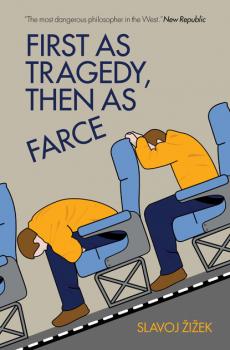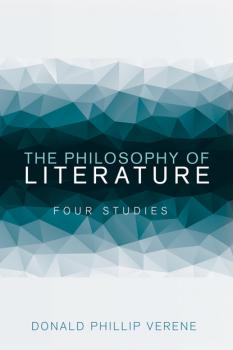ТОП просматриваемых книг сайта:
Философия
Различные книги в жанре Философия, доступные для чтения и скачиванияАннотация
First systematic presentation and assessment of the groundbreaking journal Cahiers pour l’Analyse. Concept and Form is a two-volume monument to the work of the philosophy journal the Cahiers pour l’Analyse (1966–69), the most ambitious and radical collective project to emerge from French structuralism. Inspired by their teachers Louis Althusser and Jacques Lacan, the editors of the Cahiers sought to sever philosophy from the interpretation of given meanings or experiences, focusing instead on the mechanisms that structure specific configurations of discourse, from the psychological and ideological to the literary, scientific, and political. Adequate analysis of the operations at work in these configurations, they argue, helps prepare the way for their revolutionary transformation. This first volume comprises English translations of some of the most important theoretical texts published in the journal, written by thinkers who would soon be counted among the most inventive and influential of their generation: Alain Badiou, Yves Duroux, Alain Grosrichard, Serge Leclaire, Jacques-Alain Miller, Jean-Claude Milner, and François Regnault. The book is complemented by a second volume, consisting of essays and interviews that assess the significance and legacy of the journal, and by an online edition of the full set of original Cahiers texts, produced by the Centre for Research in Modern European Philosophy at Kingston University, London and accessible at cahiers.kingston.ac.uk.
Аннотация
Investigation into the dangerous interdependence of politics and religion. The return to religion has perhaps become the dominant cliché of contemporary theory, which rarely offers anything more than an exaggerated echo of a political reality dominated by religious war. Somehow, the secular age seems to have been replaced by a new era, where political action flows directly from metaphysical conflict. The Faith of the Faithless asks how we might respond. Following Critchley’s Infinitely Demanding , this new book builds on its philosophical and political framework, also venturing into the questions of faith, love, religion and violence. Should we defend a version of secularism and quietly accept the slide into a form of theism—or is there another way?From Rousseau’s politics and religion to the return to St. Paul in Taubes, Agamben and Badiou, via explorations of politics and original sin in the work of Schmitt and John Gray, Critchley examines whether there can be a faith of the faithless, a belief for unbelievers. Expanding on his debate with Slavoj Žižek, Critchley concludes with a meditation on the question of violence, and the limits of non-violence.
Аннотация
Testing the winds of history blowing from the Arab revolts. In the uprisings of the Arab world, Alain Badiou discerns echoes of the European revolutions of 1848. In both cases, the object was to overthrow despotic regimes maintained by the great powers—regimes designed to impose the will of financial oligarchies. Both events occurred after what was commonly thought to be the end of a revolutionary epoch: in 1815, the final defeat of Napoleon; and in 1989, the fall of the Soviet Union. But the revolutions of 1848 proclaimed for a century and a half the return of revolutionary thought and action. Likewise, the uprisings underway today herald a worldwide resurgence in the liberating force of the masses—despite the attempts of the ‘international community’ to neutralize its power. Badiou’s book salutes this reawakening of history, weaving examples from the Arab Spring and elsewhere into a global analysis of the return of emancipatory universalism.
Аннотация
Slavoj Žižek’s masterwork on the Hegelian legacy. For the last two centuries, Western philosophy has developed in the shadow of Hegel, whose influence each new thinker tries in vain to escape: whether in the name of the pre-rational Will, the social process of production, or the contingency of individual existence. Hegel’s absolute idealism has become the bogeyman of philosophy, obscuring the fact that he is the dominant philosopher of the epochal historical transition to modernity; a period with which our own time shares startling similarities. Today, as global capitalism comes apart at the seams, we are entering a new transition. In Less Than Nothing , the pinnacle publication of a distinguished career, Slavoj Žižek argues that it is imperative that we not simply return to Hegel but that we repeat and exceed his triumphs,overcoming his limitations by being even more Hegelian than the master himself. Such an approach not only enables Žižek to diagnose our present condition, but also to engage in a critical dialogue with the key strands of contemporary thought—Heidegger, Badiou, speculative realism, quantum physics and cognitive sciences. Modernity will begin and end with Hegel.
Аннотация
A provocative intellectual assault on the iconic philosopher. Nietzsche, the philosopher seemingly opposed to everyone, has met with remarkably little opposition himself. He remains what he wanted to be— the limit-philosopher of a modernity that never ends. In this provocative, sometimes disturbing book, Bull argues that merely to reject Nietzsche is not to escape his lure. He seduces by appealing to our desire for victory, our creativity, our humanity. Only by ‘reading like a loser’ and failing to live up to his ideals can we move beyond Nietzsche to a still more radical revaluation of all values—a subhumanism that expands the boundaries of society until we are left with less than nothing in common. Anti-Nietzsche is a subtle and subversive engagement with Nietzsche and his twentieth-century interpreters—Heidegger, Vattimo, Nancy, and Agamben. Written with economy and clarity, it shows how a politics of failure might change what it means to be human.
Аннотация
From the tragedy of 9/11 to the farce of the financial meltdown. Billions of dollars have been hastily poured into the global banking system in a frantic attempt at financial stabilization. So why has it not been possible to bring the same forces to bear in addressing world poverty and environmental crisis? In this take-no-prisoners analysis, Slavoj Zizek frames the moral failures of the modern world in terms of the epoch-making events of the first decade of this century. What he finds is the old one-two punch of history: the jab of tragedy, the right hook of farce. In the attacks of 9/11 and the global credit crunch, liberalism dies twice: as a political doctrine and as an economic theory. First as Tragedy, Then as Farce is a call for the Left to reinvent itself in the light of our desperate historical situation. The time for liberal, moralistic blackmail is over.
Аннотация
Este libro ofrece un curriculum para una ensenanza introductoria a la filosofia de la educacion. Situado en las humanidades, las reflexiones y ejercicios aqui propuestos asumen la ofrenda de su ensenanza como una «filosofia pastoral»: la nocion de que la filosofia cumple en si misma un rol educativo.
Аннотация
This is a study about the meaning of happiness (εὐδαιμονία) in Aristotle's Nicomachean Ethics (EN). It is argued that εὐδαιμονία in EN means actuality, and it has to be interpreted through the lenses of two metaphors used by Aristotle in EN 1.7 1098a21 and 10.6 1176a30: the «perimeter of good» and the «imprint of happiness.» To explain the meaning of happiness Aristotle first has to delineate the «perimeter of good» of human beings, and he does that with the help of two criteria: the final end [τέλος] and the function of humanity [ἔργον ἀνθρώπου]. These two criteria are metaphysical concepts which describe the «good» as the final metaphysical aim of every person, and the best every person can be. This metaphysical teleological aim is the «actuality of the soul» according with excellence. This is the «perimeter» within which Aristotle enquires about εὐδαιμονία–the good of humans.
Аннотация
The Philosophy of Literature: Four Studies puts forth the question of the extent to which philosophers must go to school with the poets. It begins with a new interpretation of the famous Platonic quarrel with the poetic wisdom of Homer. It brings this question forward through the humanism of thinkers of the Italian Renaissance and the German Idealism of Hegel. It then treats the relation of philosophy and literature in four ways by considering philosophy as literature, philosophy of literature, philosophy in literature, and philosophy and literature. In regard to the first of these, it discusses Jorge Luis Borges's The Immortal, to the second James Joyce's Finnegans Wake, to the third Carl Sandburg's epic prose poem The People, Yes, and to the fourth, Sebastian Brant's Ship of Fools. This work demonstrates that in an area of thought often dominated by fashionable doctrines of literary interpretation, the great works of literature and philosophy remain as permanent residents of our thought and imagination.
Аннотация
Otherness and Ethics demonstrates how Levinas and Confucius (Kongzi) develop their ideas of otherness and ethics. Most of all, the meaning of inter-subjectivity is examined in order to employ this point as this book delves into the phenomenon of face in Levinas and the significance of ren (human-relatedness) in Confucius (Kongzi). In addition, this book searches their different notions of humanity and relatedness to have a creative discourse for developing the concept of ethics of otherness as it concentrates on the formulation of ethical narratives in Levinas and Confucius (Kongzi). Thus, this book can open a possibility of building of ethics of otherness through reviewing ethical foundations of Levinas and Confucius (Kongzi) and discussing the meaning of otherness.










